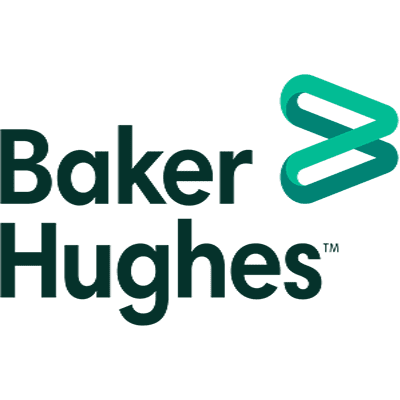
Pipeline Operator Qualifications (OQ) Training
Pipeline operators do their best to avoid the cost, both in negative publicity and dollars, of failing to meet PHMSA guidelines. That’s where Bayardo Safety can help. Bayardo’s pipeline OQ training prepares the pipeline workforce to meet all regulations created from the PHMSA and the companies they service. Bayardo also provides s safety database management service to assist companies in maintaining and verifying training documentation for the employees and consultants that make up the workforce.
Pipeline operators subject to PHMSA Parts 192 and 195 are subject to the Operator Qualification (OQ) rule and are responsible for making sure that all employees, including contractors and sub-contractors, who perform covered tasks on pipeline systems meet the qualifications specified in the rule. Bayardo Safety offers pipeline OQ training in the office and via mobile training at the location of the company.
The training can include the following:
• How to Conduct annual cathodic protection surveys,
• Maintaining test leads,
• Inspecting cathodic protection rectifiers,
• Performing cathodic protection rectifier repairs and maintenance,
• Electrically inspecting bare pipe,
• How to prevent or limit atmospheric corrosion,
• Measuring wall thickness of various types of pipe,
• Conducting cathodic protection remediation when needed,
• How to monitor the pipeline system for internal corrosion,
• Inspecting buried pipe when it becomes exposed,
• How to inspect, test and calibrate overfill protective devices,
• Finding and remediating internal corrosion,
• Inspecting internal pipe surfaces,
• Application of external coatings and repairing damage,
• How to place and maintain line makers,
• How to perform leak surveys for liquid pipelines and inspect surface conditions of ROW,
• How to inspect surface conditions of ROW and perform leak surveys for gas pipelines,
• Inspecting all navigable waterway crossings,
• Learning inspection procedures for breakout tanks,
• Providing temporary marking of buried pipelines prior to excavation,
• The inspection following excavation activities and leak surveys after blasting,
• Providing security for pipeline facilities,
• How to inspect valves,
• How to repair valves,
• Inspecting, testing and calibrating relief valves,
• Maintain and repair relief valves,
• How to effectively inspect, test and calibrate pressure limiting devices,
• Inspect, test and calibrate pressure switches and transmitters,
• Verify or set protection parameters for programmable controllers and/or other instrumentation control loops,
• Moving in-service pipe,
• Inspect existing pipe following movement,
• Measure clearance from existing pipe to underground structures installed by excavation, boring, directional drilling,
• Abandoning, safe disconnect, purging, and sealing of pipeline facilities,
• Installation, or replacement / repair of support structures on existing of new aboveground components,
• Inspection activities for tie-ins, pipeline replacements, or other components connecting to an existing pipeline,
• Backfilling a trench following maintenance,
• Performing general pipeline repair activities,
• How to conduct pressure test according to standards,
• Maintenance welding on pipeline,
• Understanding and analyzing the operations of pipeline systems,
• Computational pipeline monitoring (cpm) for leak detection and prevention,
• How to operate pressure relieving devices for launching and receiving facilities,
• Flange bolting procedures,
• The standards for performing maintenance on valves,
• How to perform leakage survey,
• Performing vault maintenance,
• Purging a pipeline,
• Testing an emergency shutdown device,
• Perform incremental pressure increases to uprate map,
• How to operate odorant equipment,
• Gas detection and alarm system maintenance and performance testing,
• Isolation of a gas compressor unit,
• Compressor station inspection and testing of remote control shutdown devices,
• Startup, shutdown and operations of a turbine driven gas compressor unit,
• Startup, shutdown and operation of an engine driven gas compressor unit,
• General abnormal conditions,
• Documentation, reporting, & operator qualification record keeping,
• Damage prevention during excavation activities by or on behalf of the operator,
• Differentiate between federal regulations, state requirements, and the ASME B31Q task list for Operator Qualification (OQ) programs,
• Review increasing scope of covered tasks,
• Discuss intricacies and best practices of compliance documentation,
• Discuss the recent PHMSA enforcement trends for OQ programs,
• Demonstrate how to best prepare for OQ and operations and maintenance audit.
Operator qualifications is not intended to be a one-time event. It is an on-going process with keeping your current workforce up to date with training and ensuring that new workforce additions meet all standards set by the PHMSA. Bayardo Safety creates custom training to keep pipeline operators compliant with a workforce that is up to code.
All pipeline companies are well aware of the need to stay abreast of compliance regulations and requirements. Many companies struggle to create the most efficient policies to track and verify the compliance certifications of their contractor and full-time employee workforce. Bayardo Safety has the tools to train your workforce and to help your company maintain its safety database records.
















